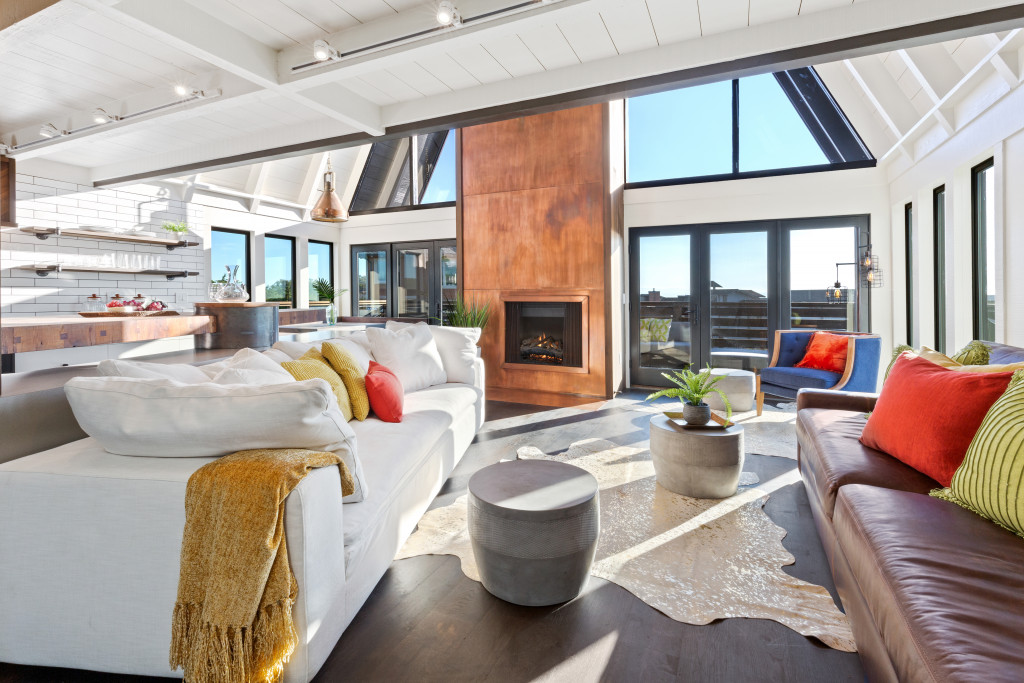Airbnb has revolutionized how people think about travel accommodation, offering a unique alternative to traditional hotels. As the world prepares to enter 2024, becoming an Airbnb host can be a lucrative venture if approached with the right strategies. In this era of digital nomadism and experiential travel, vacationers crave the comfort, authenticity, and flexibility that typical hotels may not provide. Airbnb allows them to “live like a local,” and it’s this shift in travel preference that hosts can capitalize on.
But how can you maximize your profits as an Airbnb host? What are the keys to standing out in an increasingly competitive market? From perfecting your listing to understanding your target market, implementing smart pricing strategies, and delivering exceptional guest experiences, this article provides a comprehensive guide to making Airbnb hosting profitable in 2023 and beyond. Giving you the insights you need, this article will help you navigate the journey to successful and profitable hosting on Airbnb.
Is Airbnb Profitable?
Before delving into the strategies, it’s essential to address the question of profitability. The answer is yes – Airbnb can be profitable if you put in the effort and commit to providing a great experience for your guests. According to a study, the average Airbnb host makes about $13,800 monthly. This is a significant amount that can supplement your income or even become your primary source of revenue.
Airbnbs can be profitable due to several reasons. First and foremost, the platform taps into a modern traveler’s desire for a home-away-from-home experience that typical hotels often fail to provide. This trend towards seeking unique, personalized experiences gives Airbnb hosts a competitive edge.
Secondly, Airbnb’s digital platform provides global visibility, reaching potential guests worldwide. This means that even properties in less touristy locales have the opportunity to attract guests.
Thirdly, hosts have control over their listing prices. This flexibility allows for dynamic pricing strategies, such as increasing rates during peak travel seasons or lowering them to attract last-minute bookings.
Finally, with Airbnb’s rating and review system, hosts who consistently provide excellent guest experiences can build a strong reputation, driving more bookings and subsequently, higher profits. Furthermore, successful hosts can achieve ‘Superhost’ status, increasing visibility and potential profitability.
However, while these factors contribute to the potential profitability of Airbnb hosting, it is crucial to remember that each host’s earnings will depend on various factors, including location, property type, amenities offered, and the level of service provided to guests.
How Profitable Is Airbnb in 2023?
In 2023, Airbnb profitability continues to present a promising outlook for hosts, especially in regions that have become hotspots for vacationers and digital nomads. Let’s take a look at some of the states where Airbnb hosts have been able to rake in substantial earnings.
Hawaii tops the list, with Airbnb hosts earning an average of $73,247 annually. The state’s picturesque landscapes, warm climate, and welcoming culture make it a favorite among travelers, allowing hosts to maximize their income. Tennessee is yet another lucrative location for Airbnb hosts, with an average annual earnings of $67,510. The state’s vibrant music scene, rich history, and scenic beauty make it a sought-after destination.
In Arizona, hosts are earning an average of $60,448 annually. Its diverse natural features, ranging from the Grand Canyon to its sprawling deserts, attract a multitude of tourists each year. Colorado follows closely, with hosts earning an average of $58,108 annually, thanks to its famous ski resorts and breathtaking mountain vistas.
California and Florida are also profitable states for Airbnb hosts, with hosts earning an average of $54,461 and $53,209, respectively. These states are popular tourist destinations due to their coastal attractions, theme parks, and diverse cultural offerings.
South Carolina, Utah, Oregon, and Alabama also offer considerable profits for Airbnb hosts, with average annual earnings ranging from $41,937 to $49,641. These states boast of charming towns, scenic beaches, and outdoor recreational activities that appeal to travelers.
How Much Can You Make as a Host?
As mentioned, the amount you can make as an Airbnb host will depend on several factors. These include your location, property type, and amenities offered. These exceptional earnings may not be the norm for most hosts, especially those just starting on the platform. However, with a well-crafted listing and strategic pricing, you can maximize your profits.
For most hosts, seasonal demand greatly influences their earnings. During peak travel seasons, such as summer or holidays, you can expect to charge higher rates and attract more bookings. On the other hand, off-seasons may require lowering your prices to remain competitive.
Moreover, being a successful host also involves managing expenses effectively. You need to factor in maintenance costs, cleaning fees, utilities, and any other additional expenses that may arise. By finding cost-effective solutions and regularly reviewing your expenses, you can ensure that your earnings remain profitable.
Factors Influencing Airbnb Profitability
There are several factors that can impact your profitability as an Airbnb host. Depending on the nature of your property and target market, some factors may be more relevant than others. Here are a few key considerations to keep in mind:
Location
Location is a primary determinant of your profitability as an Airbnb host. Properties located in popular tourist destinations or city centers tend to attract more guests and can command higher rental rates. It’s this demand-and-supply dynamic that plays a crucial role in dictating the price and occupancy rates of your Airbnb listing.
Firstly, if your property is situated near major tourist attractions, landmarks, or events, it is likely to draw more interest from vacationers. For instance, a beachfront property or a condo in the heart of a bustling city is more attractive to travelers seeking convenience and memorable experiences.
Secondly, properties in locations with a high influx of business travelers or conference attendees can also expect steady bookings and potentially high returns. Proximity to transportation hubs like airports, train stations, or major highways can be a significant advantage as well.
However, it’s important to remember that location isn’t just about physical geography. In the era of digital nomadism, even properties in quieter, off-the-beaten-path locations can be profitable. Spaces that offer tranquility, unique cultural experiences, or opportunities for remote work are increasingly in demand. As long as you can effectively market the unique selling points of your location, you can attract a niche audience and secure consistent bookings.
Property Type
The type of property you offer on Airbnb can also impact its profitability. Generally, larger properties with multiple bedrooms and bathrooms have the potential to generate higher earnings. This is because they can accommodate more guests at a time, making them attractive to families or groups traveling together.
However, smaller spaces like studios or private rooms in shared homes can also be profitable if marketed effectively. These types of listings are popular among solo travelers, budget-conscious vacationers, and digital nomads. Additionally, the amenities you offer can also affect your profitability. Properties with added features like a swimming pool, hot tub, or outdoor space tend to command higher rates.
If you’re considering investing in a property for the sole purpose of listing it on Airbnb, thoroughly research the market demand in your desired location and carefully weigh the potential expenses against expected profits to determine the best type of property to purchase.
Pricing
Pricing strategies are crucial to maximizing profits as an Airbnb host. Many hosts make the mistake of either undercharging or overcharging for their listing, both of which can lead to missed opportunities.
To determine the best price for your Airbnb rental, consider factors such as local market rates, demand during specific seasons, and any special events or festivals in the area that may impact prices. Additionally, keep an eye on your competitors’ pricing and adjust accordingly.
It’s also a good idea to offer dynamic pricing, which involves adjusting your rates based on demand. For example, you can increase prices during popular travel periods and lower them during slower seasons. Platforms like Airbnb also allow hosts to set different prices for weekdays and weekends, allowing you to capitalize on weekend getaways or weekday business trips.
Market Demand
Understanding the demand for vacation rentals in your area is key to maximizing profitability. Research the local tourism industry, identify popular travel seasons, and take note of any major events or festivals that may attract visitors. By monitoring market trends, you can adjust your pricing and tailor your listing to appeal to potential guests.
Another important aspect of understanding market demand is knowing your target audience. Who are you trying to attract with your listing? Families, solo travelers, couples? Knowing this can help you tailor your space and amenities to fit their needs and preferences. For instance, families may appreciate a fully equipped kitchen or kid-friendly features like cribs or high chairs, while business travelers may value a workspace with reliable Wi-Fi.
When it comes to profitability on Airbnb, staying informed and adapting to market demand is key. By continuously assessing your listing, pricing strategies, and target audience, you can ensure that your earnings remain competitive and profitable in 2023 and beyond.
What Expenses and Risks Should You Consider?
There are several expenses that come with hosting on Airbnb, and it’s important to factor these into your earnings calculations. While these may vary depending on location and property type, here are some common expenses to consider:
Cleaning fees
These can range from $20-$100 per booking, depending on the size of your space and services offered. Consider hiring a professional cleaning service for larger properties to ensure high-quality standards for guests.
Maintenance costs
Ongoing maintenance of your property and amenities is an essential expense to consider. Regular upkeep, repairs, and updates can range from a few hundred to several thousand dollars annually, so budget accordingly. As a host, it’s important to periodically review your property and address any maintenance needs promptly.
Utilities
As an Airbnb host, you are responsible for covering the cost of utilities like electricity, gas, water, and internet. As these expenses can vary monthly, it’s important to carefully monitor and budget for them to avoid any surprises. From time to time, consider conducting an energy audit of your property to identify potential areas for cost-saving.
Insurance
While Airbnb offers a Host Guarantee and Host Protection Insurance, it’s still important to have your own insurance coverage. Depending on the location and type of property, you may need additional liability or property protection policies. Discuss your hosting plans with a reputable insurance provider to find the best coverage for your needs.
Potential risks
As with any business venture, there are potential risks associated with being an Airbnb host. These include property damage, theft, and liability issues. It’s crucial to take proactive measures to mitigate these risks, such as thorough guest screening and having clear rules and expectations for guests.
Tips for Maximizing Airbnb Profitability
With the increasing popularity of Airbnb, it’s more important than ever for hosts to stand out and offer exceptional guest experiences. Here are a few tips to help maximize your profitability on the platform:
Optimizing listings
To generate bookings and attract potential guests, it’s essential to create a compelling listing that showcases your property’s unique features. Take high-quality photos, write engaging descriptions, and highlight amenities that set your space apart from others in the area.
Moreover, regularly reviewing and updating your listing can also make a significant difference in attracting guests. Consider changing based on guest feedback or market demand to keep your listing fresh and competitive.
Strategic pricing
As mentioned earlier, pricing is crucial in maximizing Airbnb’s profitability. Conduct thorough research on local market rates and monitor your competitors’ prices to determine the best pricing strategy for your listing. Consider offering discounts or promotions during slower periods to attract more bookings.
It’s also important to regularly review and adjust your prices based on demand and market trends. Dynamic pricing can be an effective strategy for capturing potential guests and optimizing profits.
Exceptional guest experiences
Lastly, providing exceptional guest experiences is key to securing repeat bookings and positive reviews. Consider adding personal touches like welcome baskets or local recommendations to make your guests’ stay more memorable. Additionally, promptly addressing any concerns or issues during a guest’s stay can significantly impact their overall experience and lead to positive reviews and recommendations.
Conclusion
While Airbnb’s profitability can vary greatly depending on various factors, including location, property type, and market demand, it is possible to maximize earnings as a host with the right strategies and management techniques. By continuously assessing market trends, adjusting pricing strategies, and providing exceptional guest experiences, you can ensure that your Airbnb listing remains profitable for years.
As the travel industry evolves, staying informed and adapting to changes in demand and guest preferences is crucial for long-term success as an Airbnb host. With a well-managed listing, strategic pricing, and exceptional guest experiences, you can achieve profitability on Airbnb in 2023 and beyond. So start planning your hosting journey and welcome guests from all over the world into your unique space. Happy hosting!
FAQs
Is Airbnb a good investment?
The success of being an Airbnb host depends on several factors, including location, property type, pricing strategies, and guest experiences. Thoroughly research your desired market and assess potential expenses to determine if this is for you.
What is the downside of owning an Airbnb?
Some potential downsides of owning an Airbnb may include the cost and effort involved in managing the property, potential damage or liability issues, and fluctuations in demand and pricing. Carefully consider these factors before becoming a host.
Is Airbnb a risky business?
As with any business venture, there are potential risks involved in being an Airbnb host, from property damage to liability issues. However, taking proactive measures and carefully managing your listing can help mitigate these risks.
Is running an Airbnb stressful?
The level of stress involved in running an Airbnb can vary depending on factors such as location, property type, and level of involvement. Proper planning, organization, and effective communication with guests can help reduce potential stressors.


